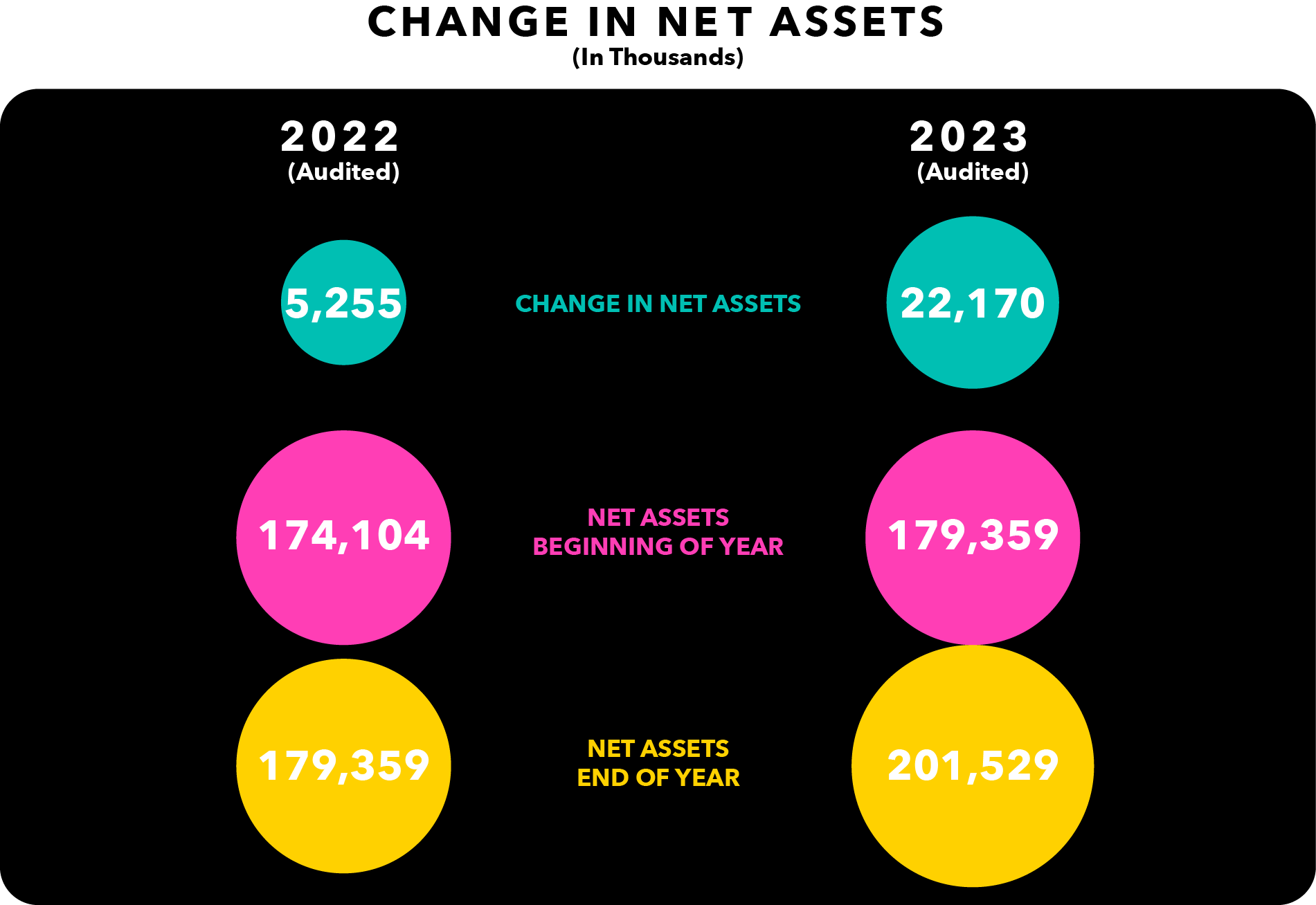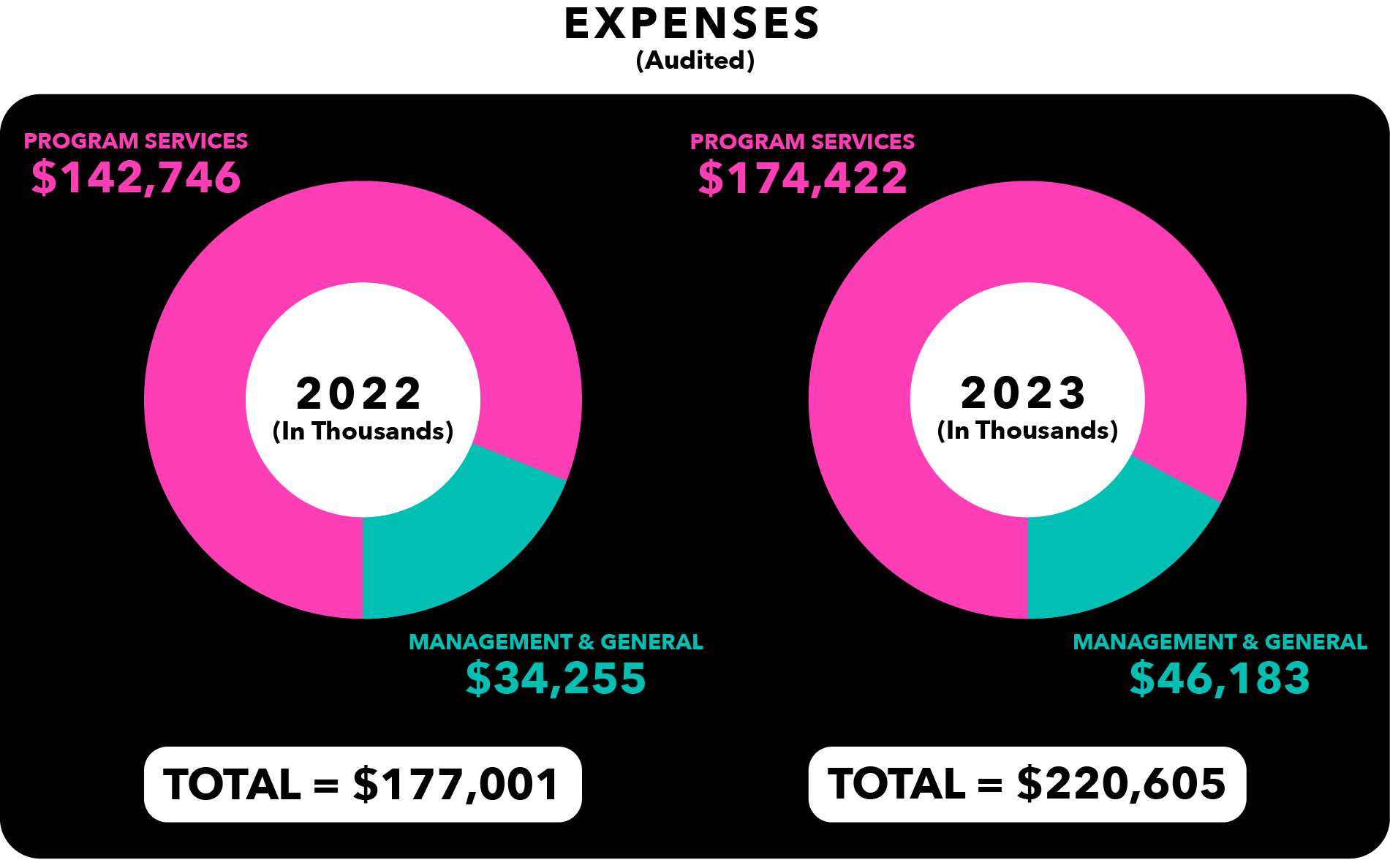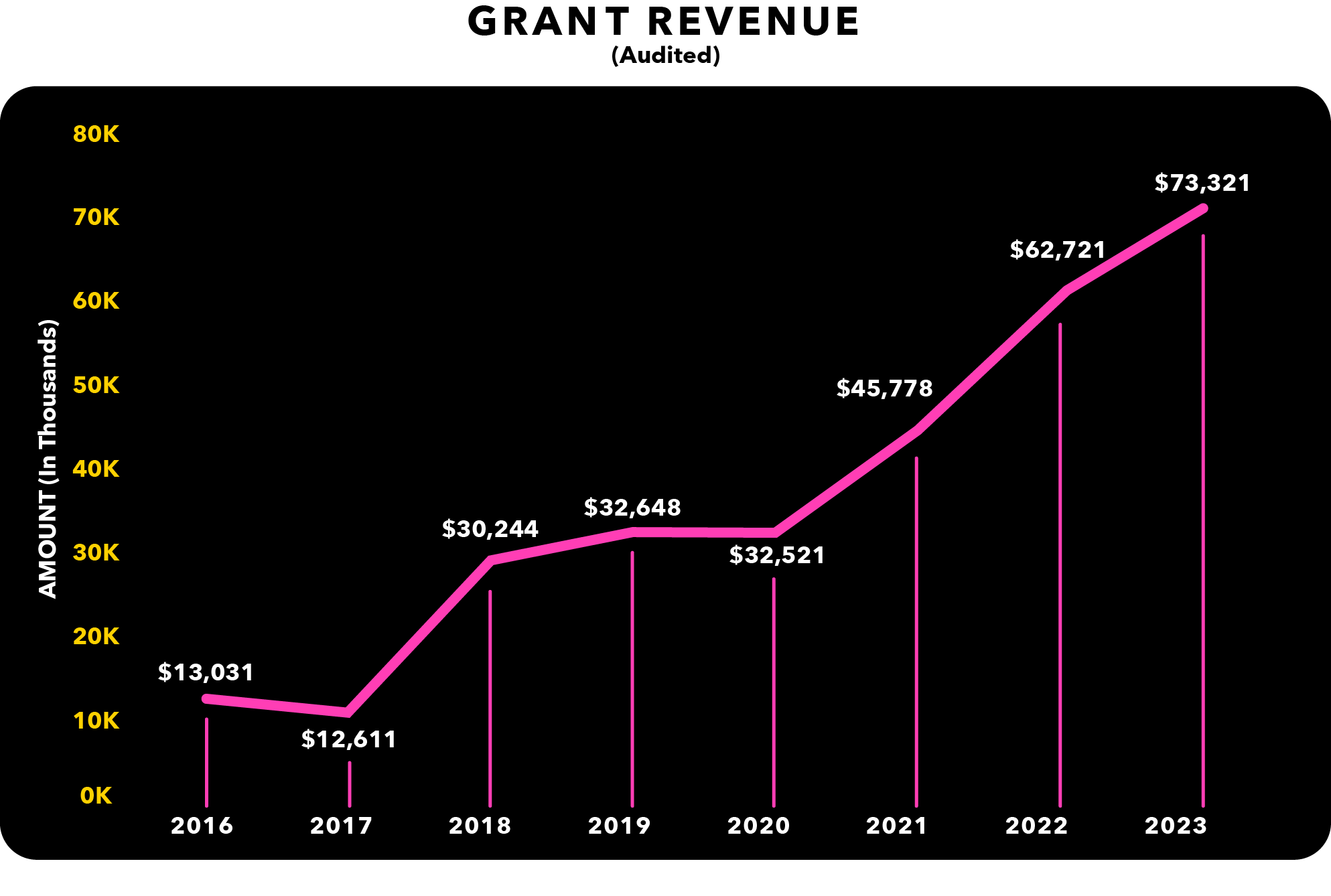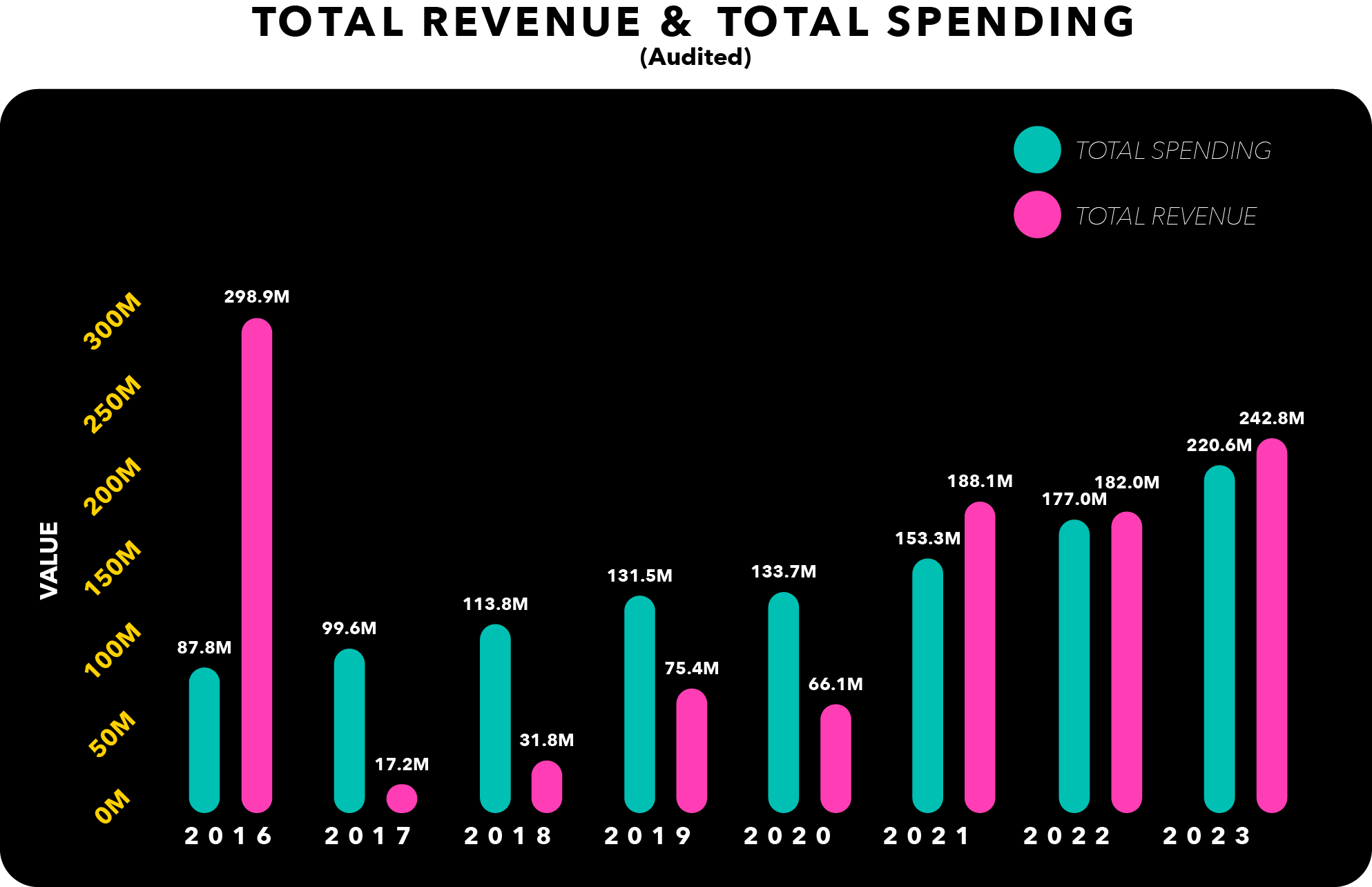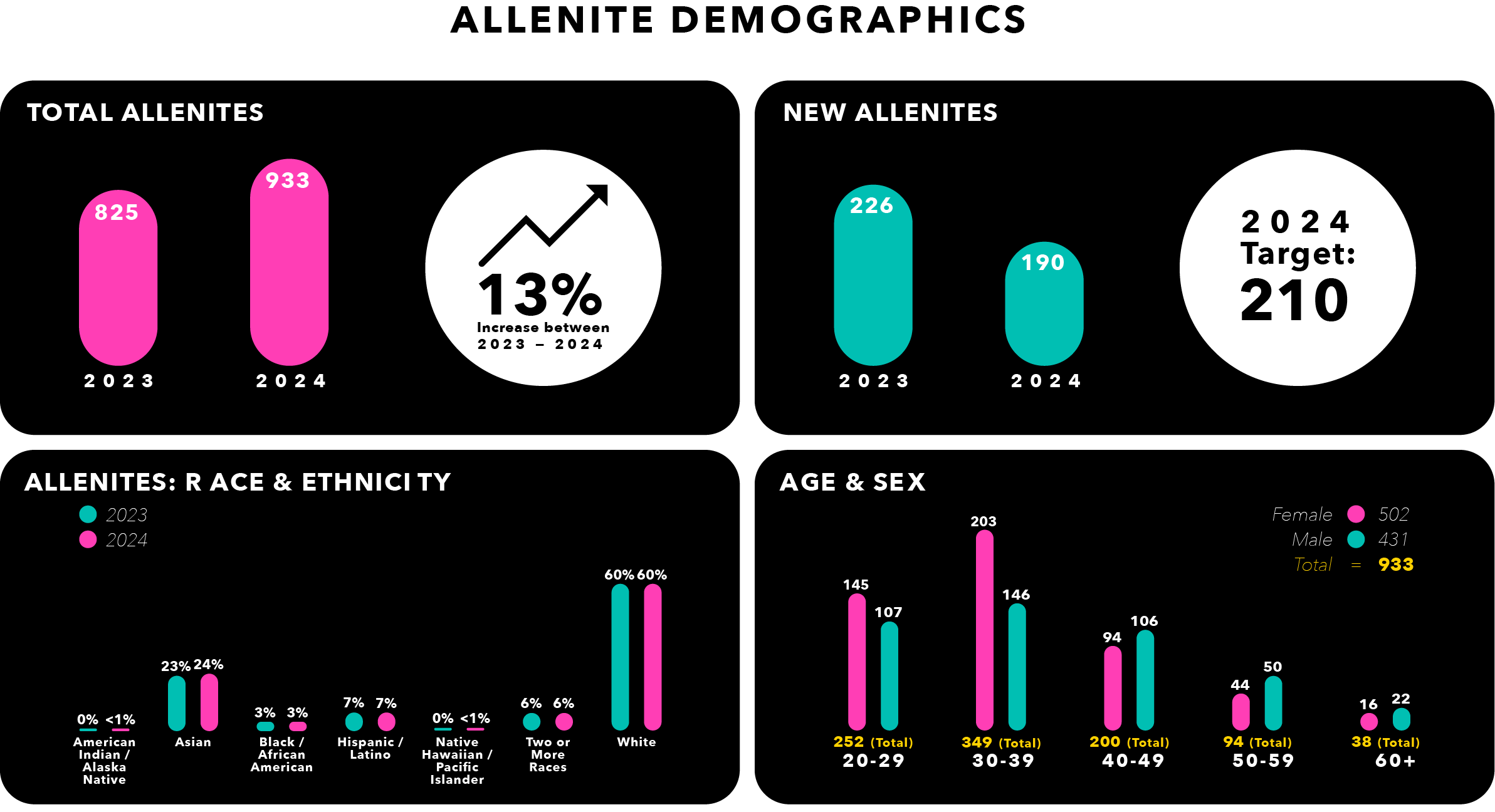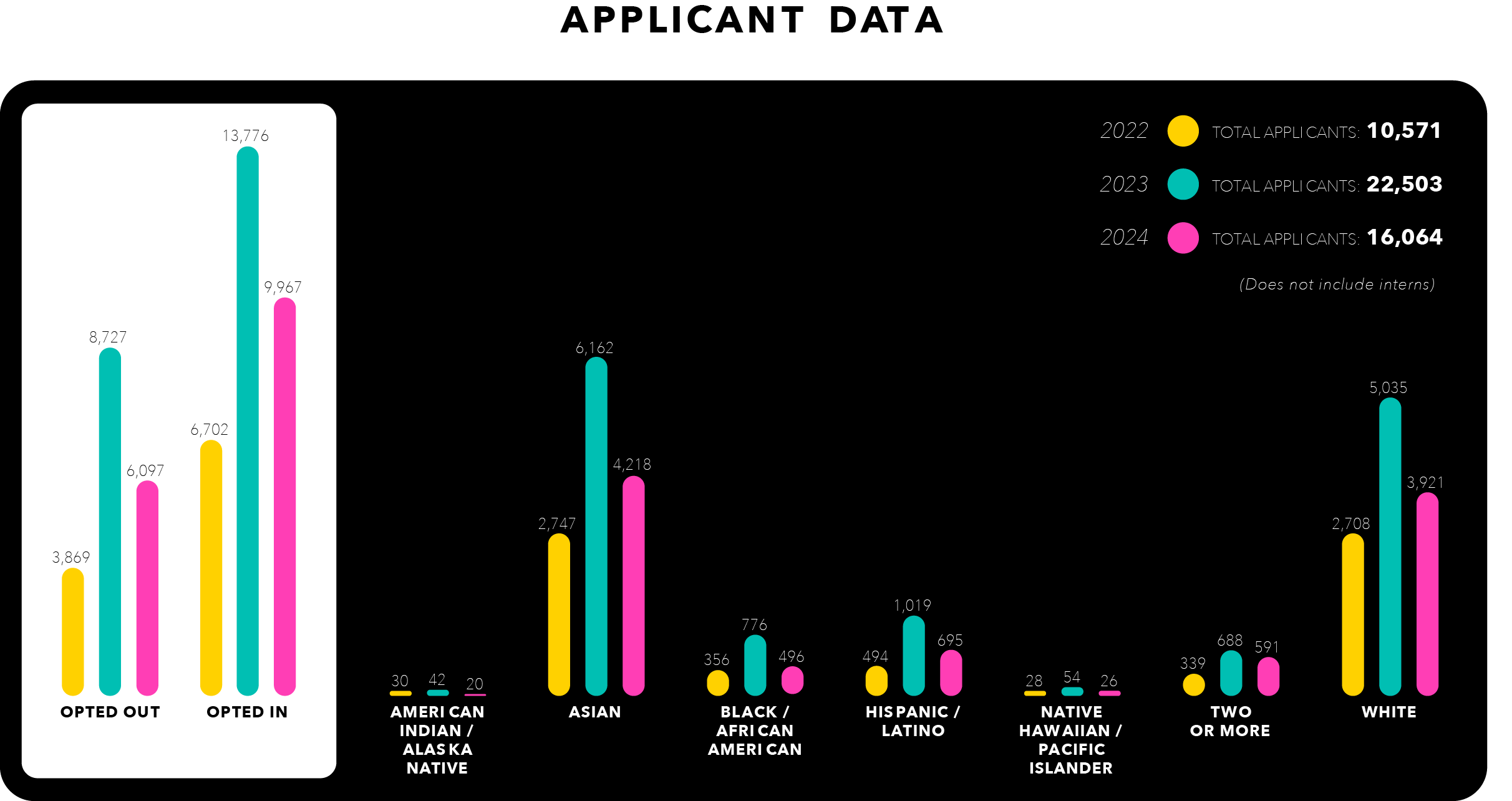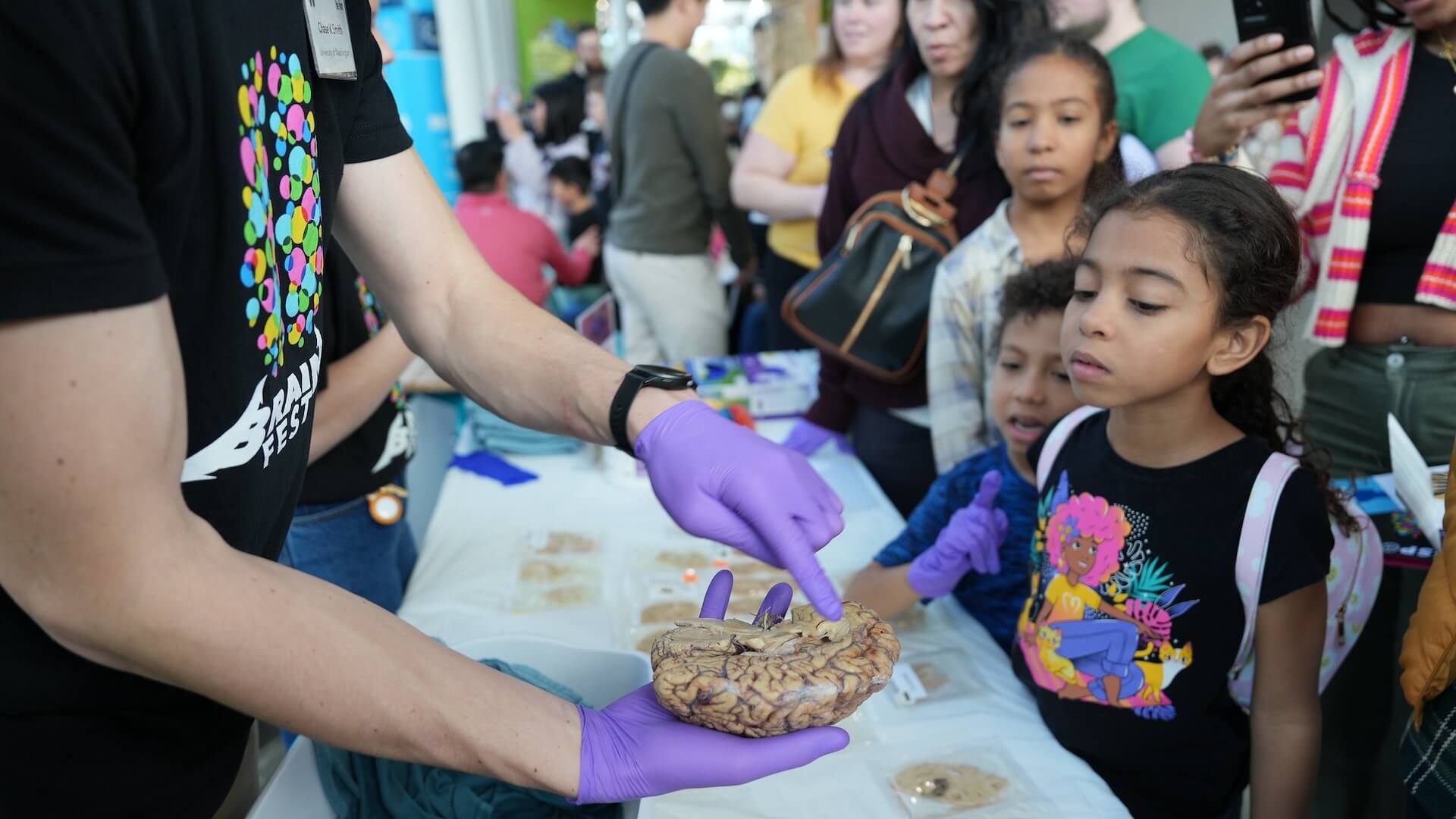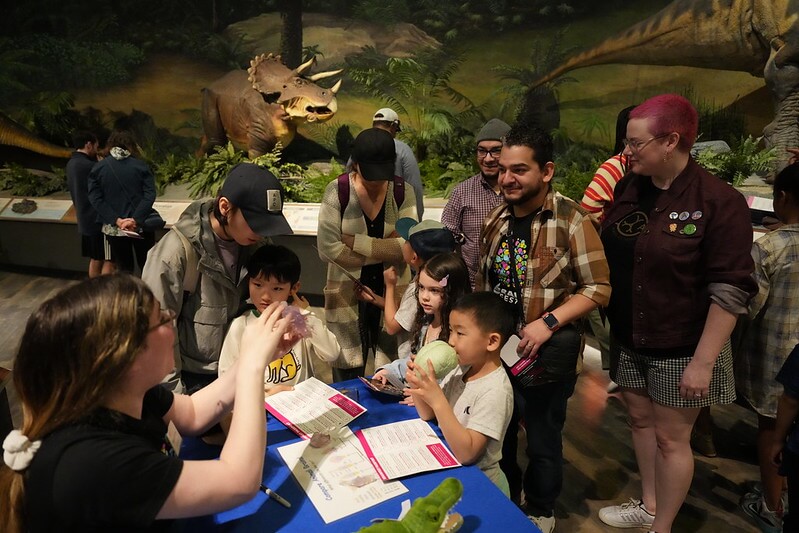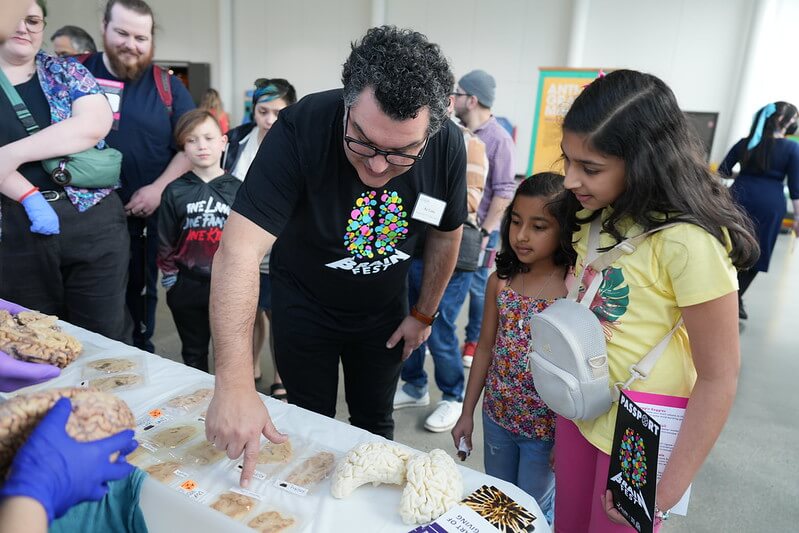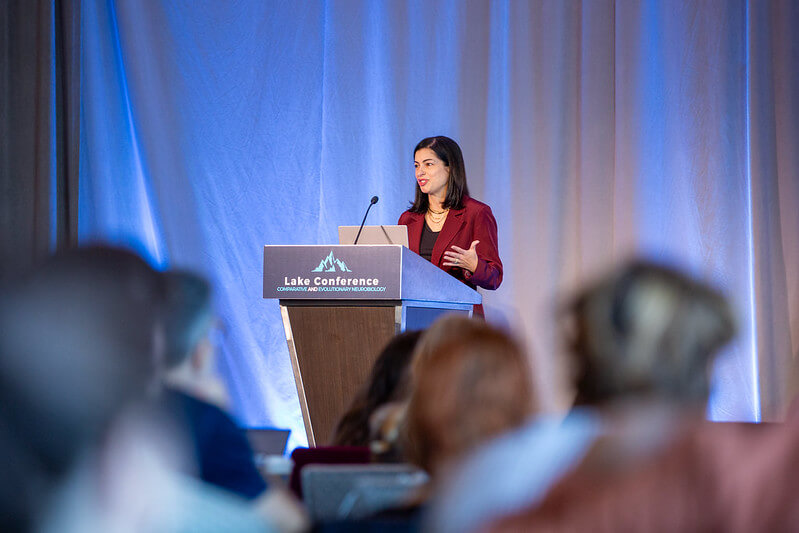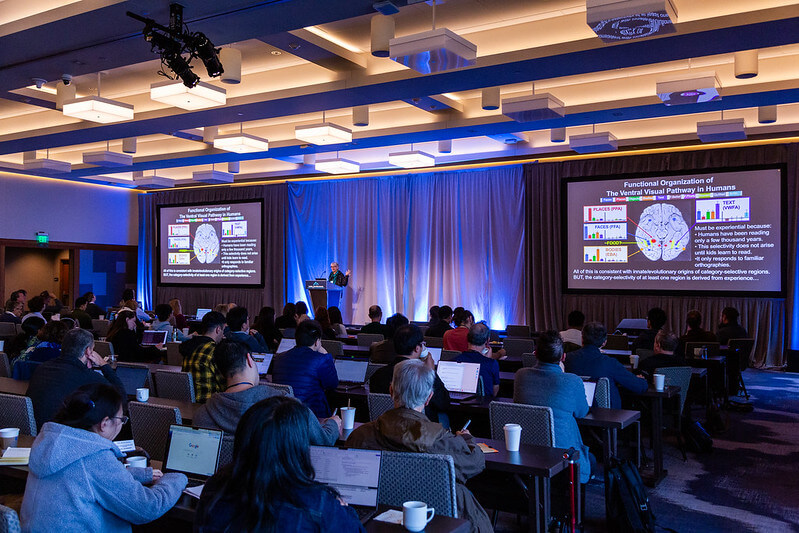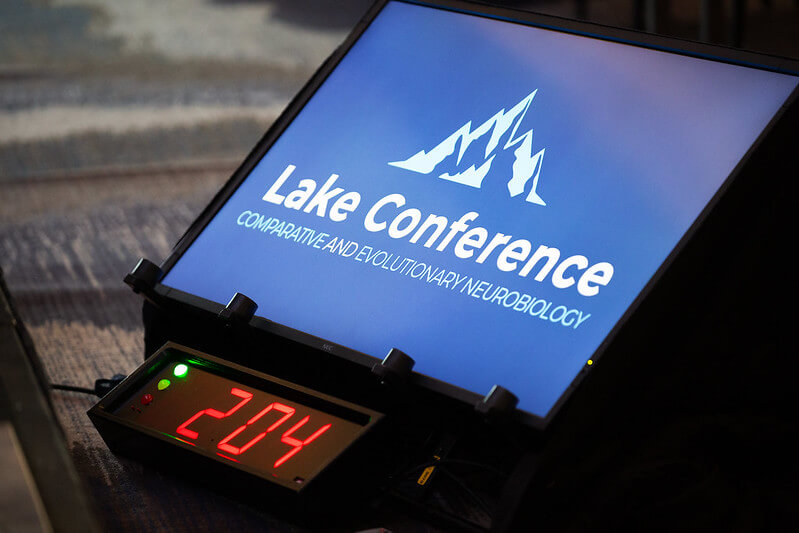A message from our CEO
President and CEO, Rui Costa, D.V.M., Ph.D., reflects on a transformative year for the Allen Institute
From unveiling the Human Immune Health Atlas to new findings related to Alzheimer’s disease, our commitment to open science and collaboration has driven advancements in understanding life and advancing health.
A decade of cell discovery
For over 10 years, our Cell Science team has been a leader in accelerating advancements in cell biology. By creating groundbreaking tools, resources, and open-access models and datasets, we have empowered researchers and educators to explore and understand cells in new ways.

Research support for a common genetic heart condition
Our Cell Science team launched six new cell line collections to accelerate research into hypertrophic cardiomyopathy, the most common genetic heart condition. Providing researchers with these robust tools paves the way for the discovery of new treatments and insights into disease progression.
Addressing critical gaps in biomedical research
In partnership with the New York Stem Cell Foundation, researchers at the Allen Institute for Cell Science are developing ethnically diverse stem cell lines to advance equitable health research. The project aims to provide researchers with deeper insights into cellular biology that are inclusive and relevant to specific diseases.

Mapping brain cells
Alzheimer’s at a cellular level
Our Brain Science team, in collaboration with UW Medicine and Kaiser Permanente Washington Health Research Institute, has created the most detailed picture yet of how Alzheimer’s disease progresses at the cellular level. These insights could provide potential targets for new treatments.
Global effort to map the human brain releases its first data
The BRAIN Initiative® Cell Atlas Network (BICAN) launched its first major data release, marking a significant milestone in the ambitious effort to map the whole human brain. The open data release is designed to accelerate discoveries in neuroscience by providing unprecedented access to raw data from brain cells across species and developmental stages.
Unprecedented insight into immune cell aging
Our Immunology team released the Human Immune Health Atlas, a comprehensive single-cell dataset mapping healthy human immune cells from childhood to adulthood. The full dataset and interactive visualization tools are available online, providing scientists worldwide with a valuable resource to study the immune system’s evolution with age and discover new strategies to combat immune-related diseases.
Discovering the early warning signs of rheumatoid arthritis
Our Immunology team is also studying the early molecular events that occur during the development of rheumatoid arthritis (RA) before symptoms appear. Researchers discovered that high-risk patients in this initial phase of the disease already have substantial inflammation, despite the absence of active arthritis, and that a small molecular immune flare accompanies active disease. These findings offer a paradigm shift in our understanding of RA development, with major changes occurring prior to active disease and suggest opportunities for preventative therapeutic intervention.
Exploring how the brain learns
Each neuron in the brain functions like a tiny computer, processing inputs from thousands of synapses with millisecond precision. To understand these computations, our Neural Dynamics team developed the SLAP2 microscope.
The SLAP2 microscope
This cutting-edge tool records signals at tiny synapses in the living brain at unprecedented speed and scale. The SLAP2 steers laser light faster and more flexibly than previous microscopes. Our scientists are using this breakthrough technology to investigate how the brain learns.
Consciousness in the mammalian brain
Advancing understanding of electrical stimulation
Electrical stimulation (ES) has been shown to be an effective therapy for neurological disorders ranging from Parkinson’s, epilepsy, to even depression. But very little is known about the underlying mechanism of this non-invasive treatment. Scientists in our Consciousness group and researchers at Cedars-Sinai are providing more insight in a study published in Neuron. Researchers offer a detailed analysis of how specific neurons respond to ES; and far from being uniform, different types of neurons showed distinct patterns of ‘syncing up’ with electrical fields. These patterns varied depending on the rate at which the ES was delivered. The new data could help doctors fine tune where, when, and how to apply ES to the brain.
The important role of the thalamus in ES
In another study, researchers in our Brain and Consciousness group are providing greater understanding into the how electrical stimulation (ES) affects the brain at a cellular level and reveal the important role the thalamus plays in modulating the brain’s response. This insight could lead to more effective treatments for neurological disorders using ES buy suppressing or promoting specific brain activity.
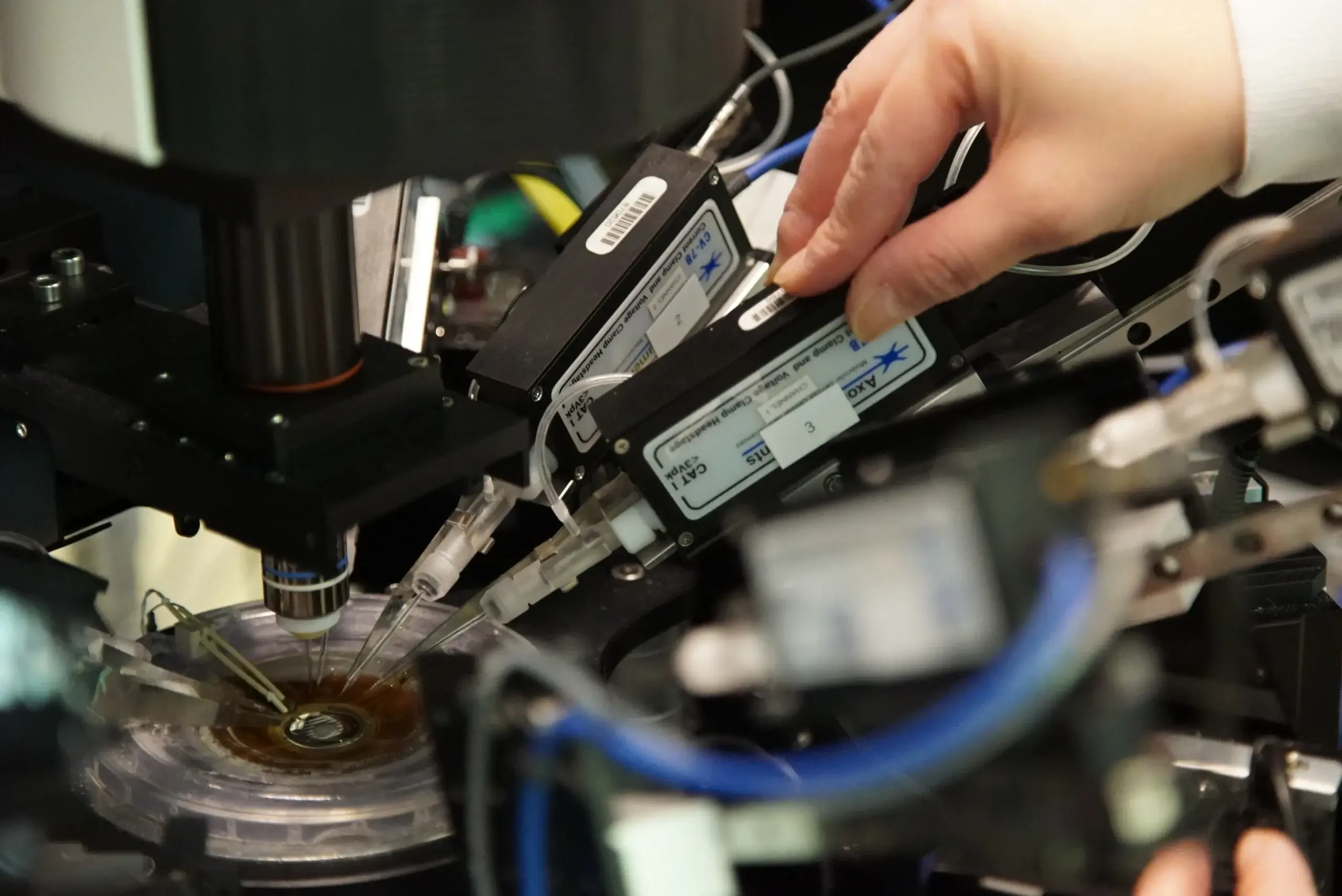
Chronicling cellular histories
Researchers at the Seattle Hub for Synthetic Biology are pioneering new technologies to capture and record cellular histories.
Central to this effort is ENGRAM, a groundbreaking method that enables genomes to sense transient biological events within living cells and, much like a flight recorder, record those events. This innovation builds on their previous DNA Typewriter method and promises to offer profound insights into cell development and responses. Both technologies were created as part of the Allen Discovery Center for Cell Lineage Tracing in Dr. Jay Shendure’s lab at UW Medicine’s Brotman Baty Institute for Precision Medicine and Department of Genome Sciences.
In a separate study in Nature, our scientists unveiled an atlas of genetic perturbations at single-cell resolution, tracking 3.2 million cells from nearly 2,000 individual zebrafish embryos, revealing how diverse cell types depend on key regulatory genes.
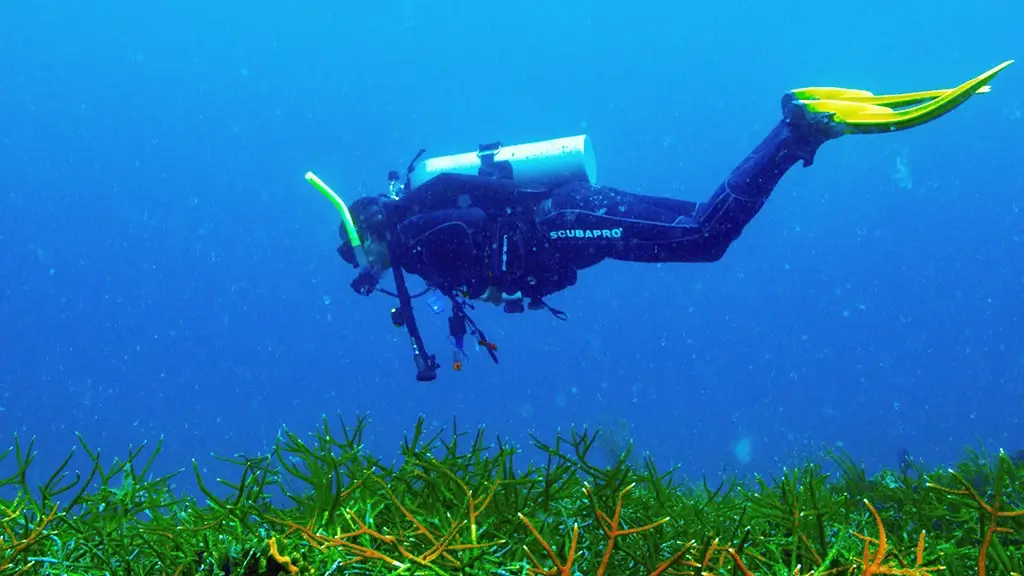
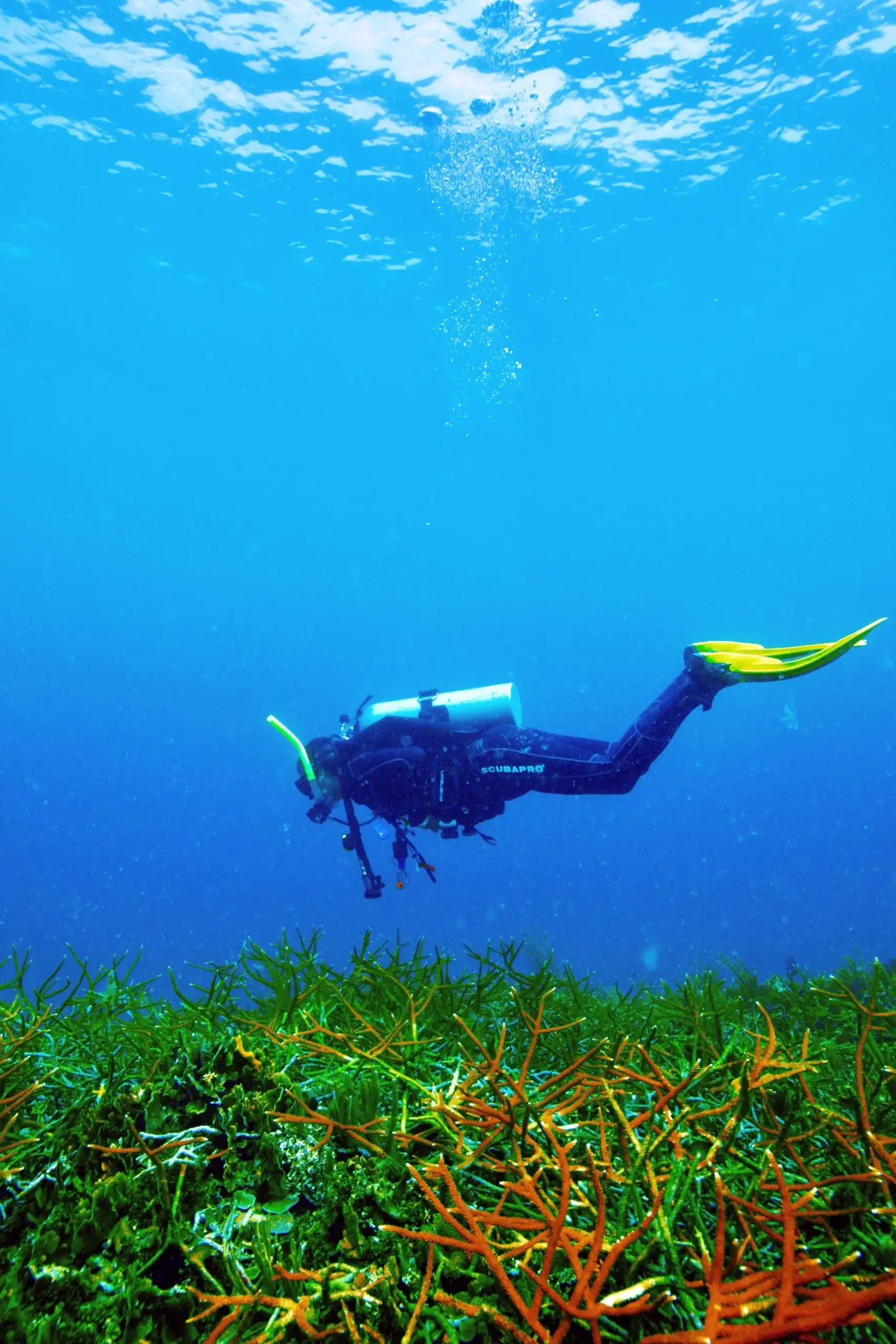
Neurobiology in changing environments
Studying how climate change affects marine life
Climate change is rapidly reshaping our oceans, stressing the nervous systems of marine organisms that have evolved over millions of years. Scientists now face a critical question: How do these environmental shifts affect these animals’ ability to sense and respond to their changing world?
To address this pressing issue, The Paul G. Allen Frontiers Group announced the launch of the Allen Discovery Center (ADC) for Neurobiology in Changing Environments. This initiative, based at Scripps Institution of Oceanography at the University of California San Diego, will investigate areas of vulnerability, adaptation, and resilience of marine animals’ nervous systems in response to these dynamic landscapes.
Education Program
Extending our impact
The Education & Engagement Program leverages our open science resources and cutting-edge research to engage with educational, scientific, and public communities, fostering their development in science. We seek to empower individuals at any stage of their education or career to use open science.
Through our Teacher Academy, we host educators from across the country, providing them with the opportunity to interact with our open science resources and staff. These educators learn how to incorporate these resources into their curricula, enabling them to bring open science education back to their communities. By doing so, empower these educators to inspire the next generation of scientists.
We also organize many field trips, welcoming groups of high school and undergraduate students, as well as other community groups. These visits allow students to experience our cutting-edge research firsthand, further extending our impact on future generations.
Lake Conferences
Showcasing global explorations and discoveries in Comparative and Evolutionary Neurobiology and The Neurobiology of Mental Health
Once again, the scientific community converged along the shores of Lake Washington at the 2024 Lake Conference. The conference provided an intimate setting for speakers to present and engage in impactful discussions on cutting-edge science with the potential to advance human health. Highlights included finding new approaches for studying human brain evolution and comparative brain cell atlasing, to understand brain structure and function.
Global Partnerships
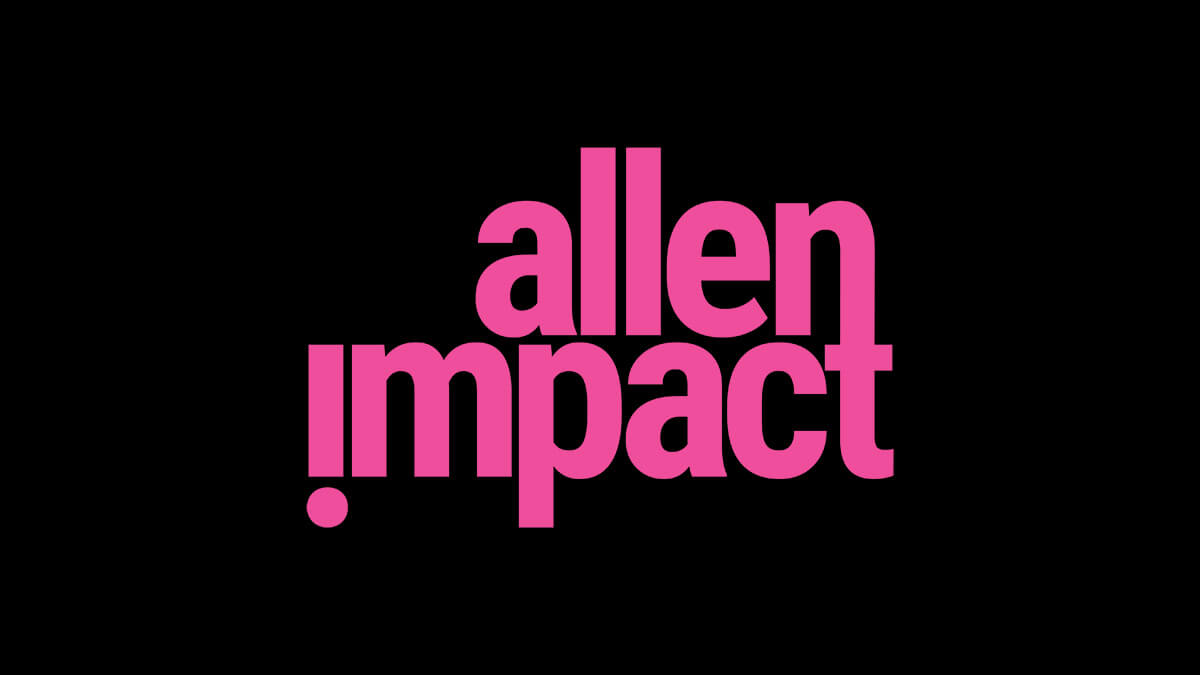
Amplifying our open research to new audiences
Building on transformative collaborations—like our data meets neuroscience fellowships with the Shanahan Family Foundation and the groundbreaking technology initiative, Seattle Hub for Synthetic Biology, with the Chan Zuckerberg Initiative — Allen Impact creates innovative opportunities at the intersection of science and creativity.
Through public engagement and unique partnerships like Hip Hop Public Health, Heatherwick Studios, and Seattle 26, in 2024 we launched key initiatives to elevate the global impact of the Institute’s mission to understand life and advance health.
Impact Council
Global thought leaders and advocates who share a passion for scientific discovery with impact lend their voices to help extend our reach to new audiences. Priscilla Chan (Chan Zuckerberg Initiative), Lady Caroline Grainge, Mellody Hobson (Ariel Investments) and Sandy Weill (The Weill Family Foundation) join as founding members.
Allen Institute Alumni Network
More than 800 former employees from 16 countries and 42 states, Allen Institute alumni are a powerful extension of our community, serving as fantastic ambassadors and creating new pathways for collaboration. Alumni came together in Seattle at an open house in July to celebrate their contributions and explore new opportunities for engagement. Those attending SfN 2024 joined the Impact Reception in Chicago, bringing together current and former team members to reconnect and strengthen valuable relationships.
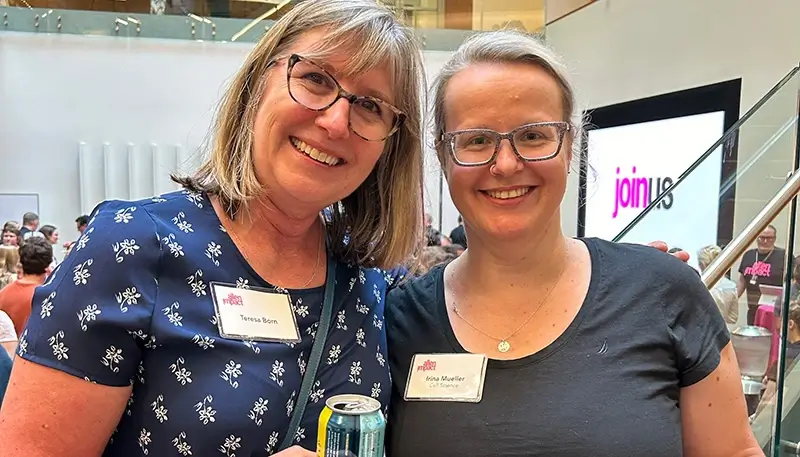
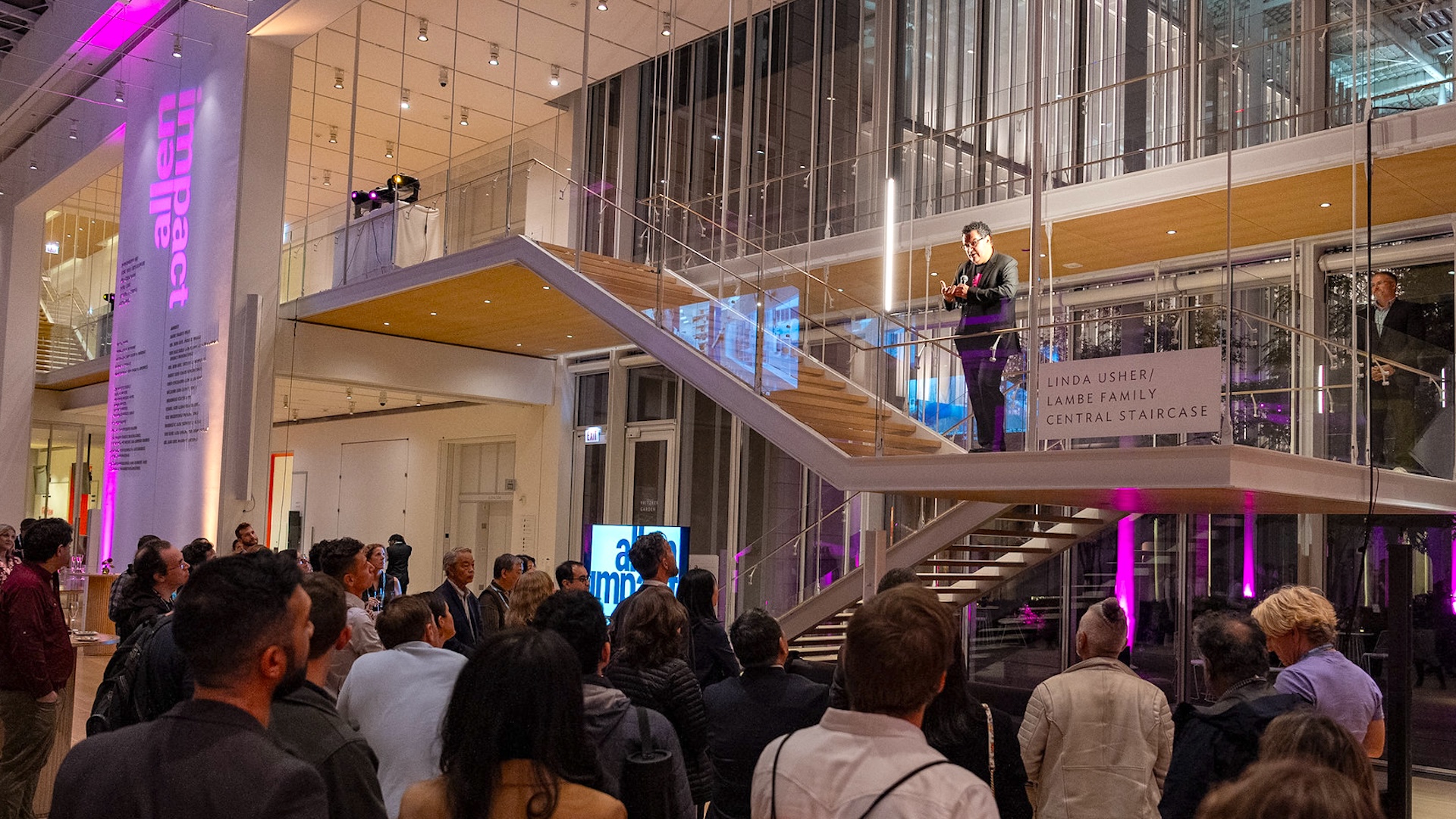
Impact Sessions
The Impact Sessions bring together unique voices from science, art, and technology to ignite fresh perspectives and meaningful discussion. A partnership event with the Seattle Opera delved into music’s connection to memory, while another with the San Francisco Ballet explored AI’s profound implications for humanity.
Over 300 passionate minds gathered at this year’s Allen Institute Impact Reception, hosted in the stunning Art Institute of Chicago during SfN 2024, embodying the Institute’s commitment to inclusive dialogue across communities.
Financial Summary
